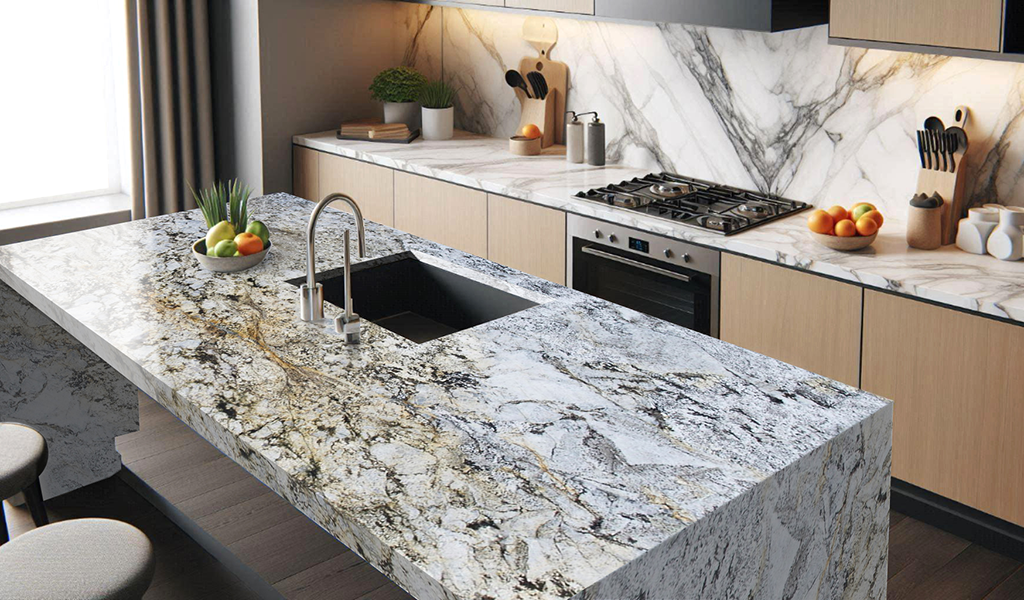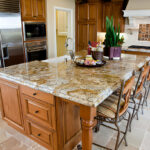Content
Why Choosing the Best Stone for Countertops Matters
When remodeling your kitchen, selecting the best stone for countertops is a crucial decision that impacts both style and functionality. With numerous options available, from natural stones like granite and marble to engineered quartz, knowing their strengths and weaknesses will help you make the right choice. This guide will explore the pros and cons of popular countertop materials, compare their maintenance requirements, and help you choose the perfect stone for your kitchen.
Best Stone for Countertops – Top Choices for Your Kitchen
Choosing the best stone for countertops is a significant decision when remodeling your kitchen. Countertops are more than just surfaces; they are essential elements that define your kitchen’s style, functionality, and durability. With various options like granite, quartz, marble, and soapstone, it can be challenging to determine which stone best suits your needs. In this comprehensive guide, we’ll explore different countertop materials, their advantages and disadvantages, and how they fit into different kitchen styles.
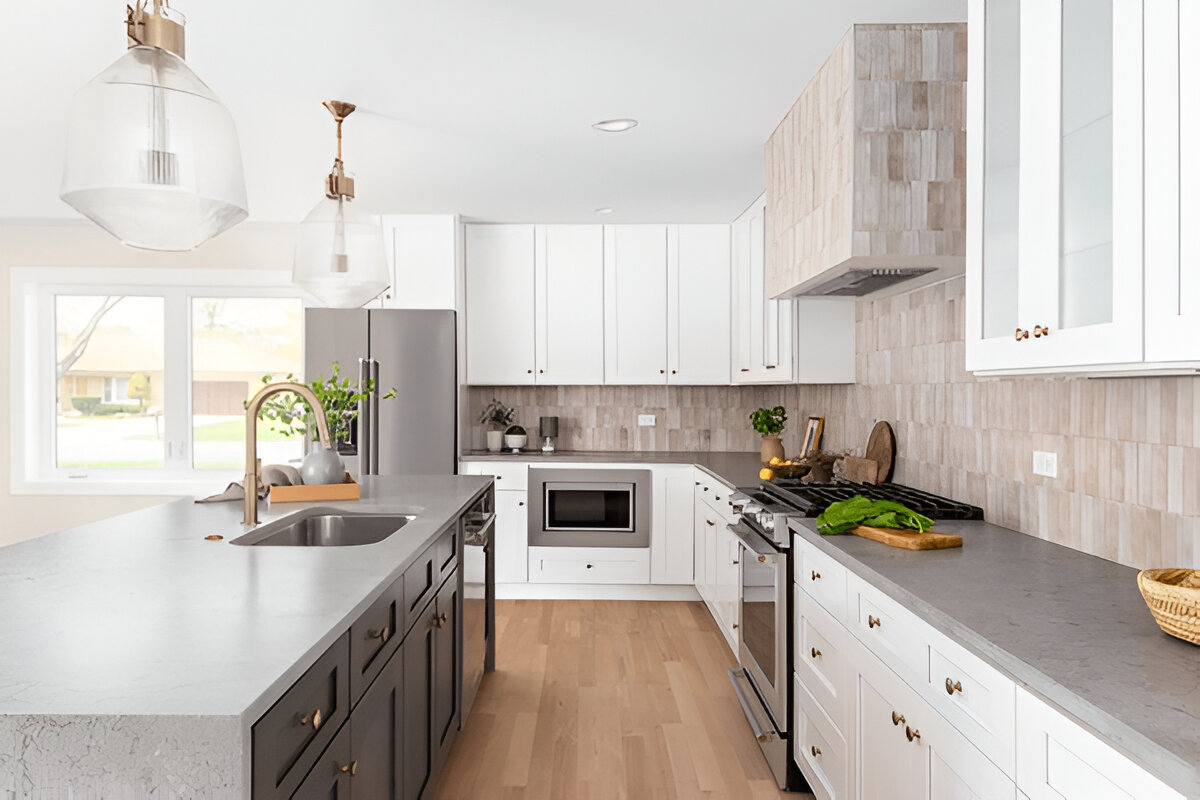
Quartz Countertops – Durable, Stylish, and Low Maintenance
Quartz countertops are a top choice for homeowners seeking a blend of aesthetics and practicality. As an engineered stone, quartz combines natural quartz crystals with resins, resulting in a non-porous and highly durable surface.
-
Why Choose Quartz?
Quartz is resistant to stains, scratches, and bacteria, making it perfect for busy kitchens. It’s easy to clean and requires no sealing, unlike natural stones. Additionally, quartz is available in a wide range of colors and patterns, from marble-like veining to solid hues. -
Drawbacks of Quartz:
Despite its durability, quartz is not heat-resistant. Placing hot pans directly on the surface can cause damage. Additionally, prolonged exposure to sunlight may cause discoloration, making it less suitable for outdoor kitchens.
For more information on quartz options, visit European Granite Design’s Quartz Collection.
Granite Countertops – A Timeless Natural Stone
Granite remains one of the most popular choices for kitchen countertops due to its natural beauty and durability. Each granite slab is unique, featuring distinct colors and patterns formed by natural minerals.
-
Benefits of Granite:
Granite is highly heat-resistant, making it ideal for avid cooks. It also resists scratches and daily wear and tear. With proper care and sealing, granite countertops can last a lifetime. -
Cons of Granite:
The main drawback of granite is its porosity, which means it can absorb liquids and stain if not sealed properly. It also requires periodic sealing to maintain its resistance to stains and bacteria.
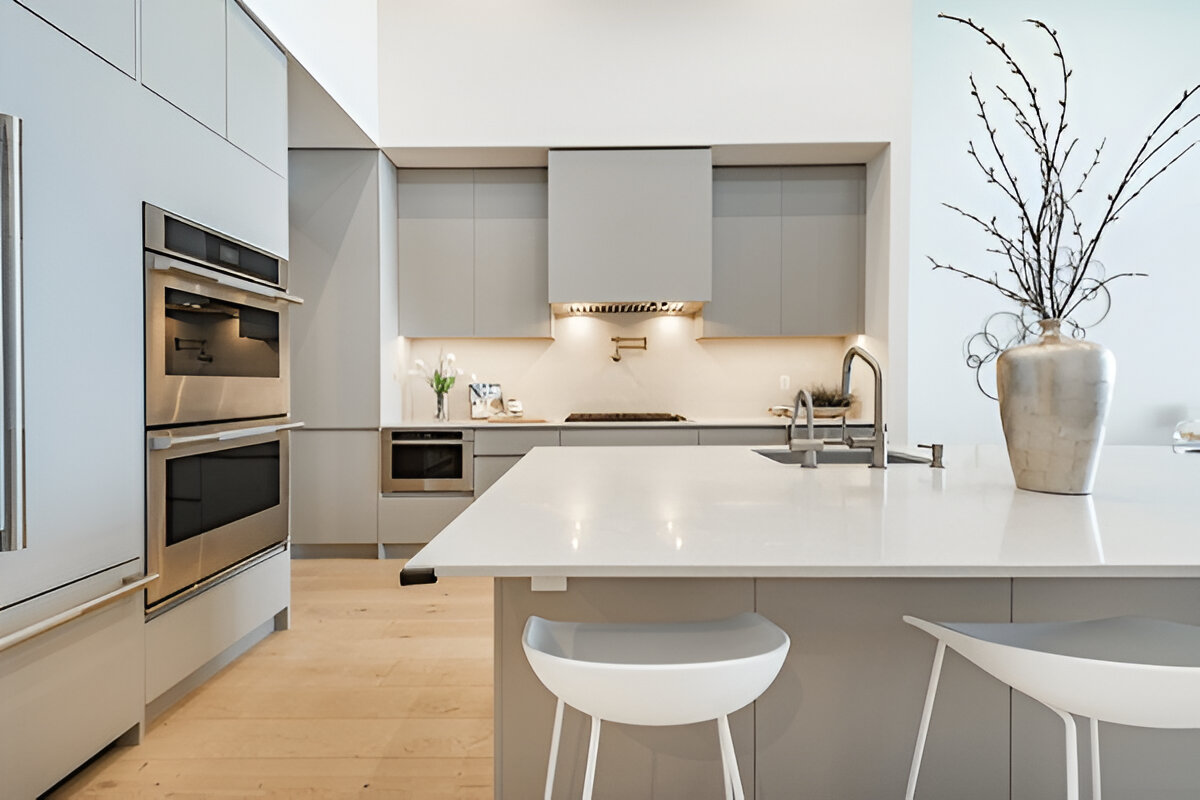
Explore granite countertop options from European Granite Design.
Marble Countertops – Luxurious and Timeless
Marble is synonymous with luxury and elegance, making it a popular choice for high-end kitchens. Known for its veining and natural beauty, marble is ideal for creating a sophisticated kitchen aesthetic.
-
Advantages of Marble:
Marble offers a cool surface, which is perfect for baking and pastry preparation. Its unique patterns ensure that no two marble countertops are ever the same, providing an exclusive look. -
Challenges with Marble:
Marble is more prone to staining and scratching than other stones. Acidic substances like lemon juice can cause etching, and it requires regular sealing and proper care.

Discover stunning marble countertop designs.
Soapstone Countertops – Soft, Warm, and Durable
Soapstone, a natural stone with a soft, warm feel, is becoming increasingly popular for kitchen countertops. It develops a unique patina over time, adding character to your kitchen.
-
Why Choose Soapstone:
Soapstone is naturally non-porous, making it resistant to stains and bacteria. It is highly heat-resistant and requires minimal maintenance, with occasional oiling to enhance its natural dark hue. -
Drawbacks of Soapstone:
The softness of soapstone means it can scratch easily. However, minor scratches can be sanded out, and the natural aging process adds to its charm.
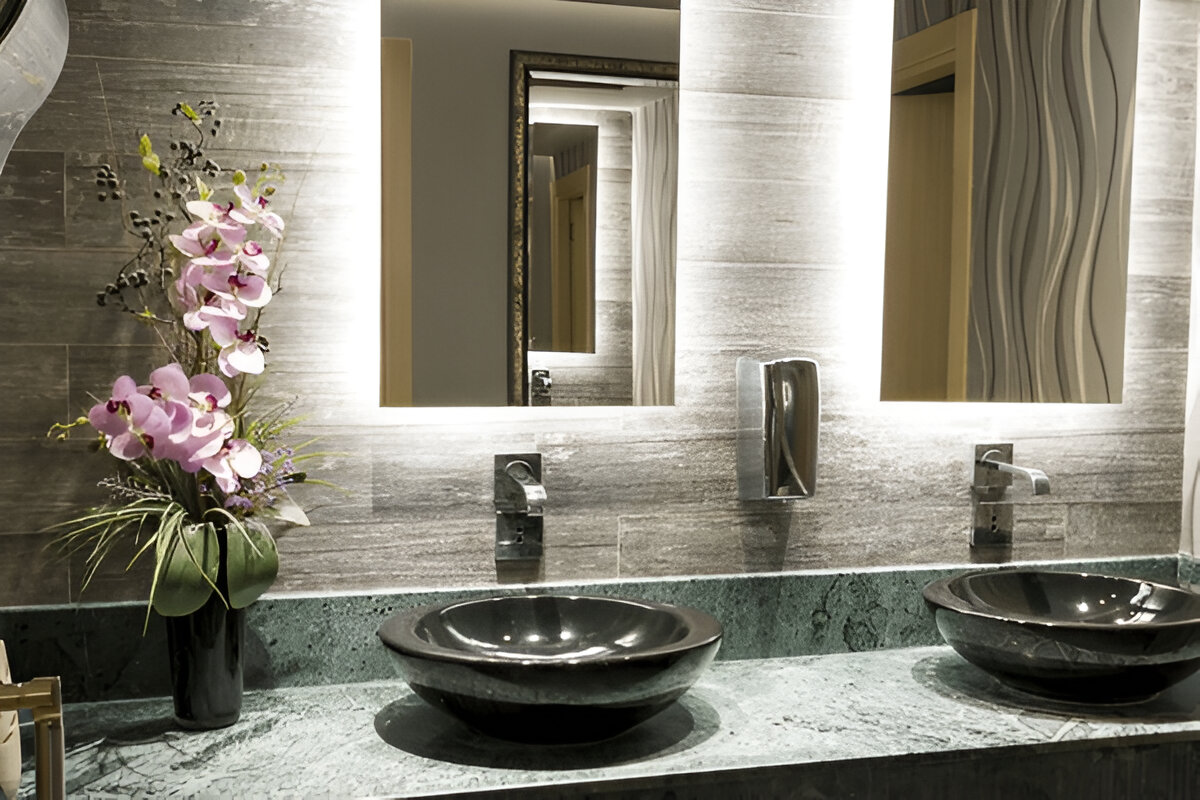
Quartzite Countertops – The Beauty of Marble with Granite’s Strength
Quartzite, a natural stone formed from sandstone and heat, offers the elegance of marble with the durability of granite. It’s an excellent choice for those seeking a natural look without high maintenance.
-
Pros of Quartzite:
Quartzite is extremely durable, heat-resistant, and scratch-resistant. It’s available in soft, neutral tones with beautiful veining patterns, making it ideal for both modern and classic kitchens. -
Cons of Quartzite:
Like granite, quartzite requires regular sealing to prevent stains. It’s also more expensive than many other countertop materials due to its durability and natural beauty.
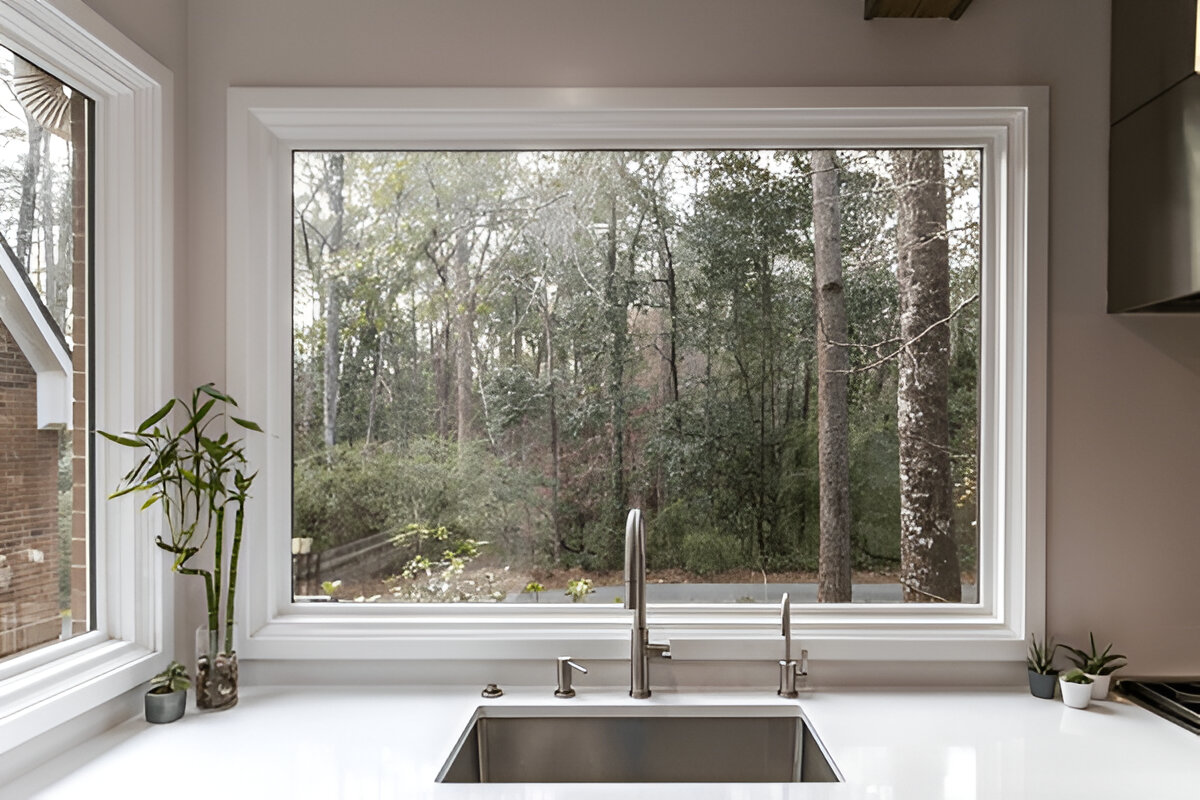
Onyx Countertops – Exotic and Eye-Catching
Onyx is a rare and exotic natural stone known for its striking patterns and translucent qualities, which can be backlit for a stunning visual effect.
-
Why Choose Onyx:
Onyx offers a unique, dramatic appearance with bold colors and patterns. It’s perfect for statement pieces like kitchen islands. -
Cons of Onyx:
Onyx is one of the more delicate stones, prone to scratching and staining. It requires regular maintenance and sealing to preserve its beauty.
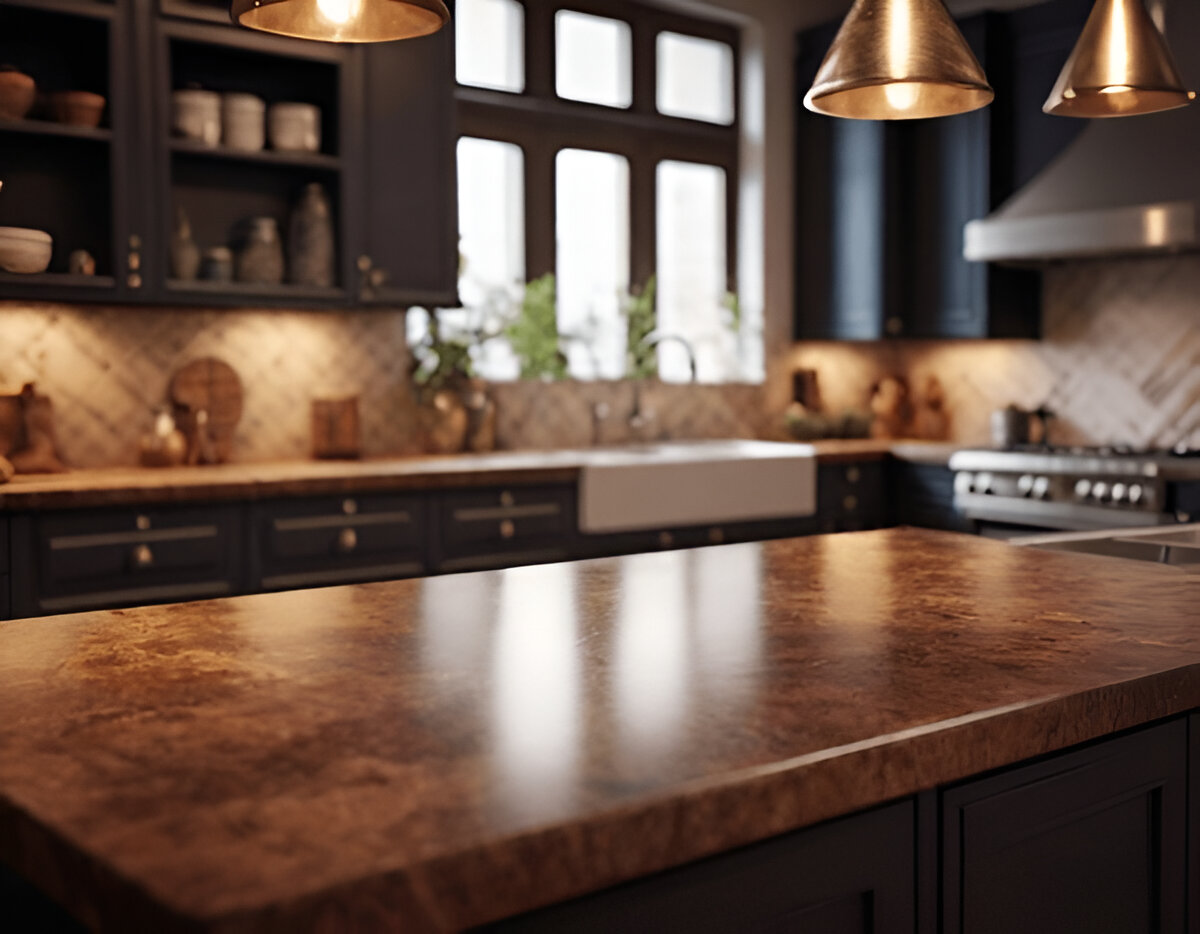
Travertine Countertops – Rustic Charm with Natural Warmth
Travertine, a type of limestone, brings a rustic and textured look to your kitchen. It’s popular for homeowners who prefer earthy tones and natural patterns.
-
Benefits of Travertine:
Travertine offers a warm, inviting appearance and is available in various shades from beige to cream. It’s also highly heat-resistant.
Drawbacks of Travertine:
Travertine is porous and prone to staining, requiring regular sealing. It’s also softer than granite or quartz, making it more susceptible to scratches.
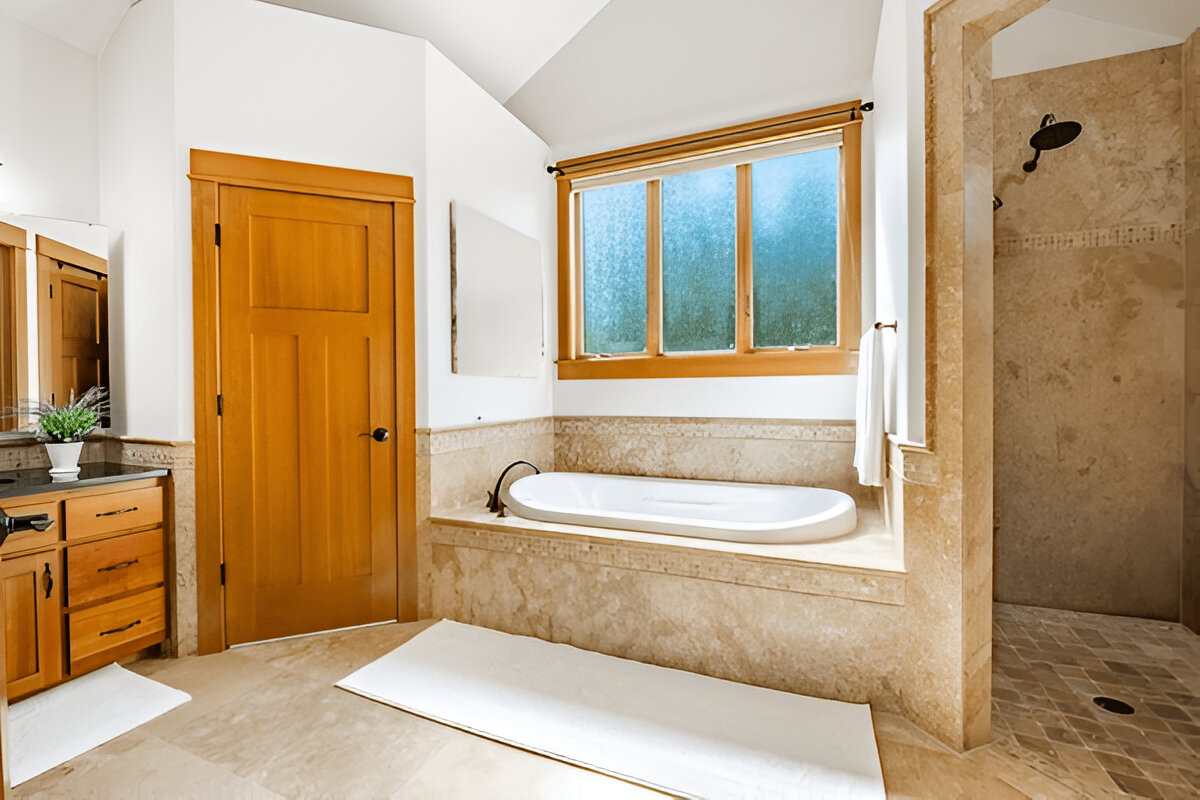
Factors to Consider When Choosing the Best Stone for Countertops
Choosing the best stone for countertops requires more than simply picking what looks good. Your countertops are a central part of your kitchen, and the material you select will affect your kitchen’s durability, maintenance, and overall style. Here are the key factors to consider to ensure you make the best choice for your needs and lifestyle.
1. Durability and Hardness
Durability is one of the most critical factors when choosing a countertop material, especially for busy kitchens. Some stones are incredibly hard and resistant to scratches, while others are more prone to damage from daily wear and tear.
- Quartz: Known for its durability and resistance to scratches and stains. A great option for high-traffic kitchens.
- Granite: Highly durable and resistant to heat and scratches, but it requires sealing to prevent staining.
- Marble: Beautiful but prone to scratching and staining without proper care. Ideal for lower-traffic areas or baking stations.
- Quartzite: Offers the hardness of granite with the look of marble, making it both durable and stylish.
If durability is your top priority, explore granite and quartz options from European Granite Design.
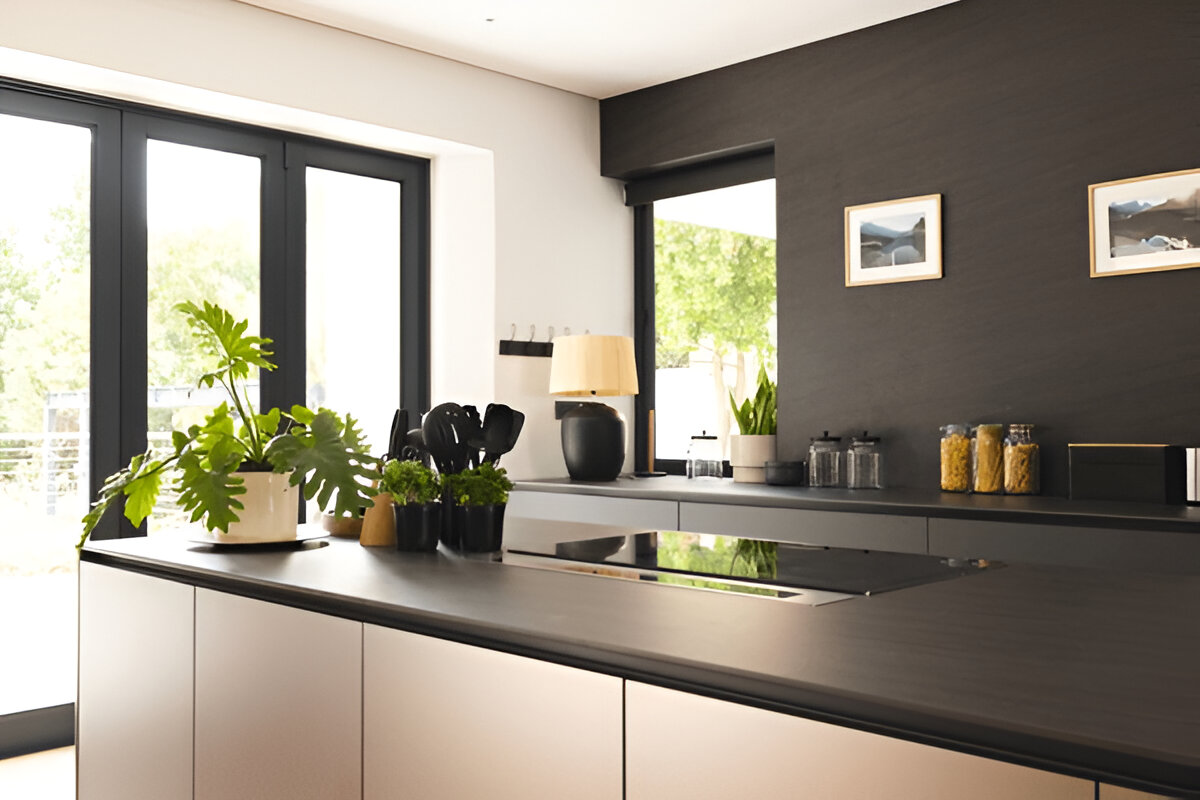
2. Heat Resistance
Kitchen countertops must handle heat from pots, pans, and baking trays. Natural stones are generally better at withstanding high temperatures than engineered materials.
- Best Choices: Granite, soapstone, and quartzite are highly heat-resistant and suitable for busy kitchens.
- Caution: Quartz, although durable, can be damaged by extreme heat due to its resin content. Use trivets or hot pads to protect the surface.
- Marble: Resists heat but may etch from hot cookware placed directly on it.
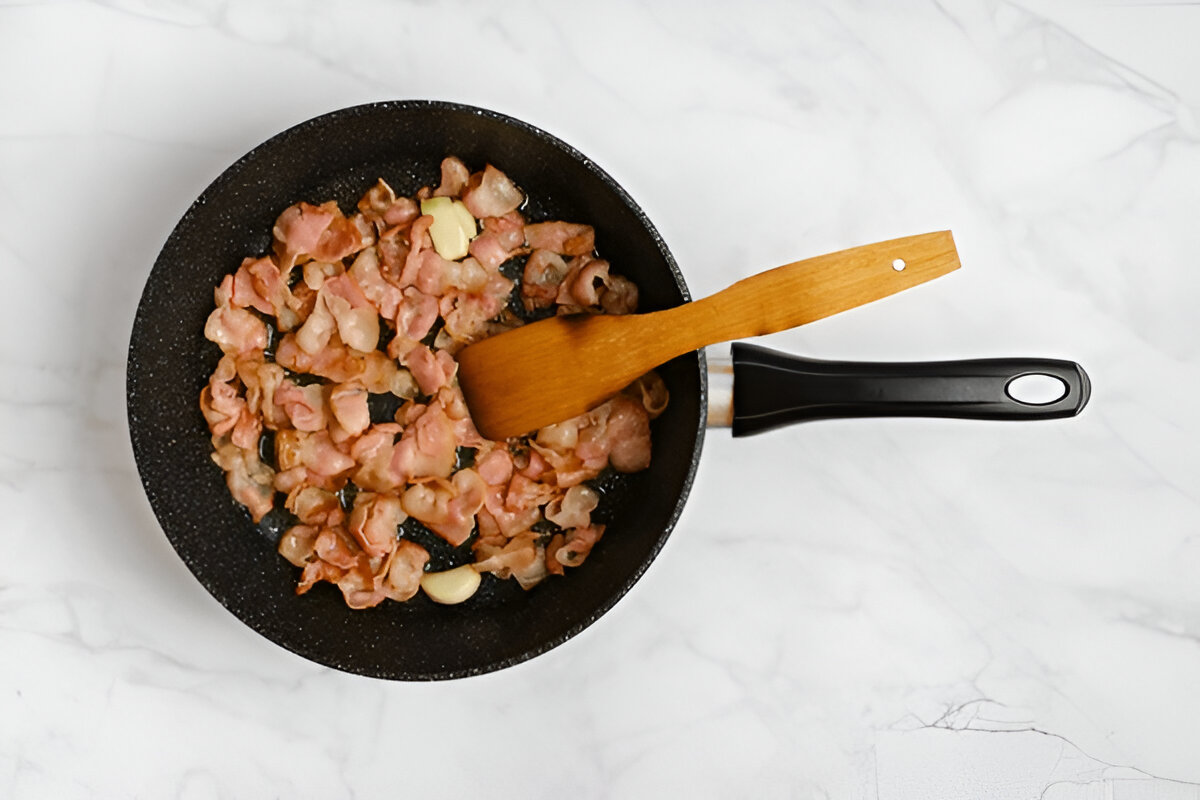
3. Maintenance Requirements
The amount of care and maintenance required varies significantly among different stones. Some countertops require regular sealing, while others only need simple cleaning.
- Low-Maintenance Options: Quartz is non-porous and requires no sealing—just regular cleaning with mild soap and water.
- Medium Maintenance: Granite and quartzite need periodic sealing (usually once a year) but are otherwise easy to maintain.
- High Maintenance: Marble and soapstone require more frequent sealing and can be prone to staining and etching. Soapstone may also need occasional oiling to maintain its rich color.
For low-maintenance solutions, browse quartz countertops.
4. Colors and Patterns
The visual appeal of your countertops plays a significant role in your kitchen design. Different stones offer different colors and patterns, ranging from subtle to bold.
- Quartz: Available in an almost endless variety of colors and patterns, including options that mimic natural stone.
- Granite: Offers unique natural patterns with colors ranging from black and gray to red, green, and gold.
- Marble: Known for its elegant veining and classic white hues, although it is also available in darker shades.
- Soapstone: Typically found in shades of gray with subtle veining that darkens over time.
- Quartzite: Provides a natural look similar to marble but with more durability, featuring shades like white, gray, and soft pastels.
Explore our granite collection for stunning natural patterns.
5. Stain and Spill Resistance
Kitchens are prone to spills from coffee, wine, oils, and sauces, so choosing a countertop that resists stains is crucial.
- Best for Stain Resistance: Quartz is non-porous, making it highly resistant to staining.
- Good with Proper Care: Sealed granite and quartzite resist most stains, but they need periodic sealing.
- High Stain Risk: Marble and limestone are highly porous and can easily stain if spills are not cleaned immediately.
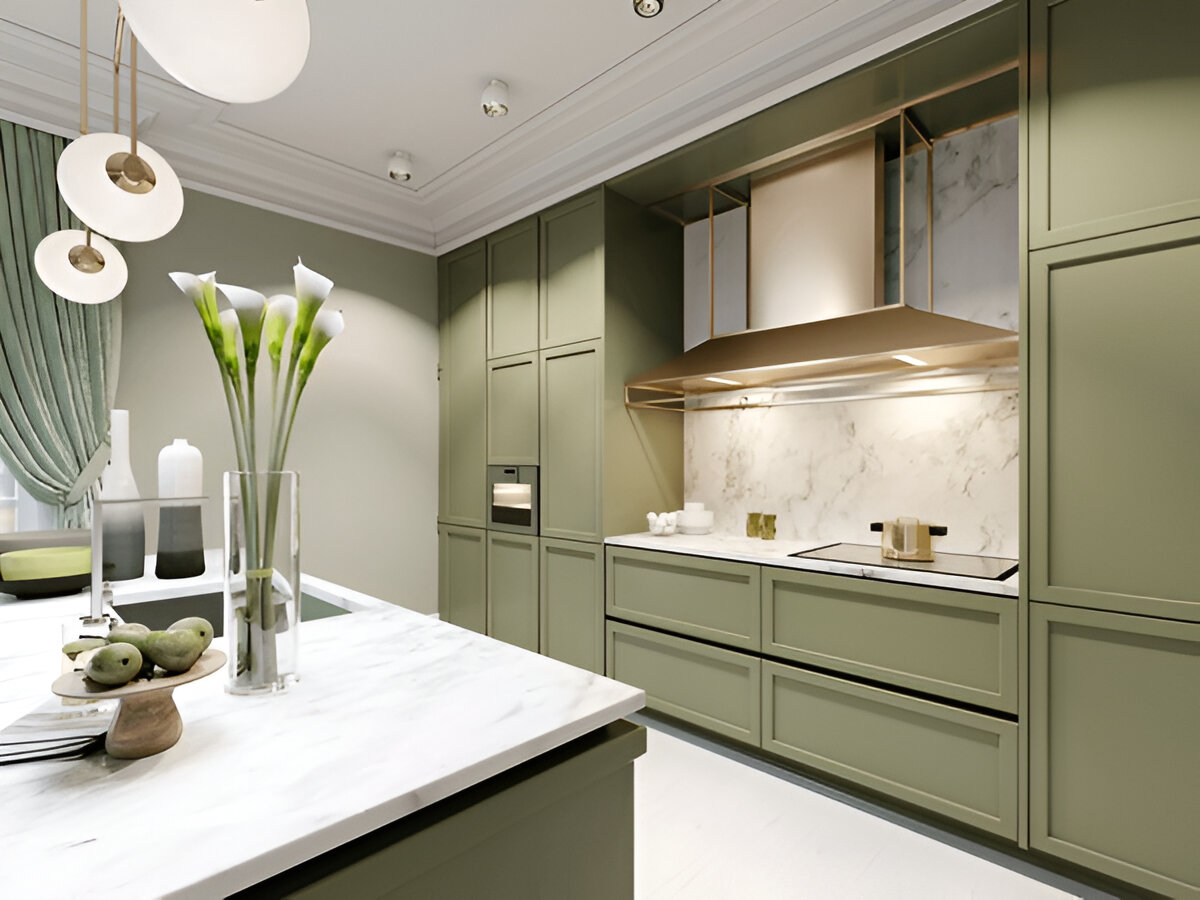
For stain-resistant options, check out our quartz countertops.
6. Scratch Resistance
Scratch resistance is essential for homeowners who do a lot of food prep directly on the countertop.
- Highly Scratch-Resistant: Granite and quartzite are tough and can withstand cutting and chopping without damage.
- Moderately Resistant: Quartz resists scratches but may be damaged by heavy cuts due to its resin content.
- Easily Scratched: Marble and soapstone are softer stones that scratch easily, although minor scratches can often be sanded out.
7. Cost and Budget
The cost of countertops varies significantly based on the material, color, and rarity. While it’s essential to stay within budget, remember that countertops are a long-term investment.
- Budget-Friendly: Laminate and some granite options.
- Mid-Range: Quartz and most granite colors.
- High-End: Marble, quartzite, and exotic granite varieties.
To explore options that fit your budget, visit European Granite Design.
8. Impact on Resale Value
The countertops you choose can significantly affect your home’s resale value. High-quality natural stone countertops are attractive to potential buyers.
- High Resale Value: Granite, quartz, and marble are highly desirable and can increase your home’s marketability.
- Moderate Resale Value: Soapstone and quartzite are appealing but more niche in style.
- Lower Resale Value: Laminate and solid surfaces typically do not add much to resale value.
9. Environmental Impact and Sustainability
If you are eco-conscious, consider the environmental impact of your countertop material.
- Sustainable Choices: Soapstone and locally sourced granite have lower environmental impacts.
- Recycled Materials: Some quartz brands use recycled glass or stone to create sustainable options.
- High Impact: Exotic stones and imported marble can have a significant carbon footprint due to transportation.

10. Suitability for Kitchen Style
The type of stone you choose should complement your overall kitchen design style.
- Modern and Contemporary Kitchens: Quartz and polished granite with sleek edges.
- Traditional and Farmhouse Kitchens: Marble, soapstone, or honed granite with a natural finish.
- Rustic or Industrial Kitchens: Leathered granite or textured quartzite for a rugged look.
11. Edge Profiles and Thickness
The edge profile of your countertop can add style and personality to your kitchen. Popular options include:
- Straight or Eased Edge: Simple and modern.
- Beveled Edge: Adds a classic, elegant look.
- Ogee Edge: Perfect for traditional or luxurious kitchens.
- Waterfall Edge: A modern, seamless design where the countertop extends to the floor.
When choosing the best stone for countertops, consider your lifestyle, cooking habits, and design preferences. If you want a low-maintenance and versatile surface, choose quartz. For natural beauty and timeless appeal, granite or marble might be perfect for you.
At European Granite Design, we offer a wide selection of premium countertop materials to suit every taste and budget. Visit our gallery to explore options and find your perfect countertop today!
Why Quartz Countertops Are a Popular Choice
Quartz countertops have become a leading choice for homeowners due to their blend of style, durability, and low maintenance. As an engineered stone, quartz offers many advantages over natural stone, making it a practical and beautiful addition to any kitchen. Let’s dive into the reasons why quartz countertops are a popular choice and how they compare to other options.
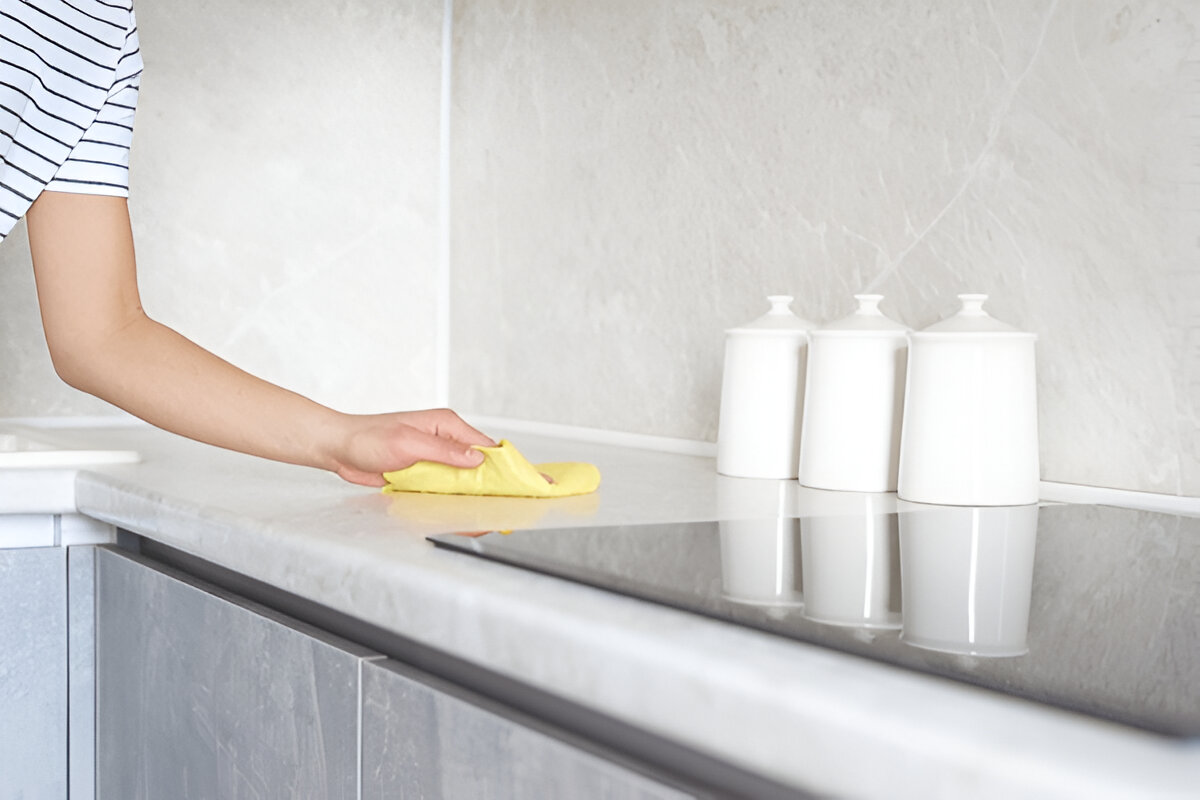
1. Exceptional Durability and Strength
Quartz countertops are made from approximately 90-95% natural quartz crystals combined with resins and pigments. This composition makes them incredibly strong and resilient, capable of withstanding daily wear and tear. Unlike natural stones like marble or granite, quartz is non-porous, which means it doesn’t absorb liquids or harbor bacteria. This makes it an excellent choice for busy kitchens where spills and messes are common.
2. Low Maintenance and Easy to Clean
One of the biggest reasons homeowners choose quartz is its low maintenance. Unlike granite or marble, which require regular sealing, quartz countertops are virtually maintenance-free. The non-porous surface resists staining from coffee, wine, and oil, making cleaning as simple as wiping with a mild detergent and water.
If you want a low-maintenance option that retains its beauty for years, check out quartz countertops at European Granite Design.
3. Wide Variety of Colors and Patterns
Quartz is engineered, which means it comes in a broad range of colors and patterns, including styles that mimic natural stones like marble and granite. Whether you prefer a solid, minimalist look or a bold, veined pattern, quartz offers options to suit any design style. From classic white and soft grays to dramatic black or earthy tones, there’s a quartz countertop to match every kitchen aesthetic.
4. Non-Porous Surface: Stain and Bacteria Resistant
The non-porous nature of quartz countertops means they are highly resistant to stains, making them ideal for kitchens where spills from acidic or colored foods are common. This quality also prevents bacteria and mold from penetrating the surface, making quartz one of the most hygienic countertop options available.
5. Consistent Appearance and Seamless Designs
Unlike natural stones, which have variations in color and veining, quartz offers a more consistent appearance. This is particularly useful for large kitchen islands or expansive countertop areas, where uniformity is essential for a cohesive look. Additionally, quartz can be fabricated into seamless designs with integrated sinks or backsplashes, providing a modern and polished aesthetic.
6. Heat and Scratch Resistance
While quartz countertops are highly durable, they do have some limitations regarding heat resistance. The resin used in quartz can be damaged by extreme heat, so it is essential to use trivets or hot pads to protect the surface. However, quartz is highly scratch-resistant, making it suitable for heavy-use kitchens.
For more details on durable options, explore quartz surfaces at European Granite Design.
7. Environmentally Friendly and Sustainable
Many quartz manufacturers use recycled materials, such as glass and stone byproducts, making quartz an eco-friendly option. Additionally, since quartz is engineered, there is less quarrying of natural stone, reducing the environmental impact.
Maintenance Tips to Prevent Staining and Keep Your Countertops Beautiful
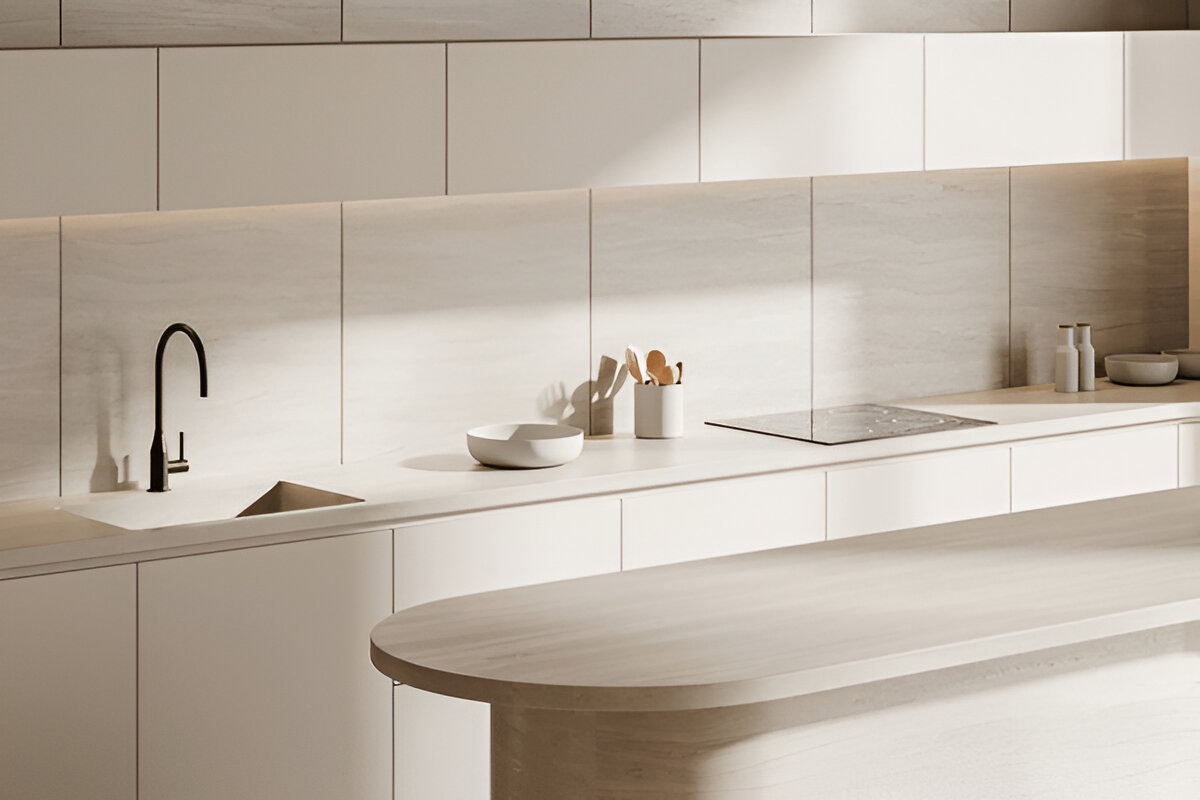
Even though quartz countertops are known for their durability and low maintenance, proper care ensures they stay beautiful for years to come. Here are essential maintenance tips to prevent staining and keep your countertops in top condition:
1. Clean Spills Immediately
Although quartz is resistant to stains, it’s best to clean spills promptly, especially from acidic substances like wine, coffee, vinegar, or citrus juice. Use a soft cloth or sponge with mild dish soap and warm water to wipe away spills.
2. Use Non-Abrasive Cleaners
Avoid harsh cleaning chemicals or abrasive scrubbers, as they can dull the surface. Stick to pH-balanced cleaners or a simple mixture of mild dish soap and water. For tougher stains, a gentle glass cleaner or a paste of baking soda and water can be effective.
3. Avoid Heat Damage
Quartz countertops are heat-resistant to a degree, but prolonged exposure to high temperatures can cause discoloration or cracking. Always use trivets or hot pads under pots, pans, and small kitchen appliances like air fryers or slow cookers.
4. Use Cutting Boards to Prevent Scratches
Although quartz is scratch-resistant, it’s not scratch-proof. Using cutting boards for chopping and slicing will prevent micro-scratches that can dull the surface over time. Additionally, cutting directly on quartz can damage your knives.
5. Protect Against Staining Agents
Quartz is resistant to staining, but prolonged exposure to certain substances can cause discoloration. Be cautious with:
- Red wine, coffee, and tea
- Oil-based products
- Tomato sauce or curry
- Strong dyes like beet juice or food coloring
Clean these spills immediately to prevent surface discoloration.
6. Avoid Harsh Chemicals and Solvents
Do not use:
- Bleach or ammonia-based cleaners
- Oven cleaners or drain solvents
- Abrasive scouring pads
- High-pH alkaline cleaners
If you accidentally spill harsh chemicals on your countertop, rinse immediately with plenty of water and clean with mild soap.
7. Perform Routine Cleaning and Polishing
A daily wipe with a soft cloth and mild soap keeps your quartz counters looking polished. For a deeper clean, use a quartz-safe surface cleaner. Unlike natural stones like granite or marble, quartz never requires sealing or waxing.
8. Prevent Sunlight Damage
If your kitchen receives a lot of direct sunlight, prolonged UV exposure can cause quartz colors to fade. Consider using blinds or UV-resistant window films to protect your countertops.
Why Choose Quartz and How to Maintain It
Quartz countertops combine beauty, durability, and easy maintenance, making them a popular choice for modern kitchens. With their wide range of colors and patterns, they fit seamlessly into any design style. Additionally, their stain-resistant, non-porous surface ensures hygiene and long-lasting performance.
Proper care and maintenance, such as cleaning spills promptly, using cutting boards, and protecting against heat, will keep your quartz countertops looking beautiful for years.
Explore more about our high-quality quartz countertops at European Granite Design and transform your kitchen with style and functionality.

